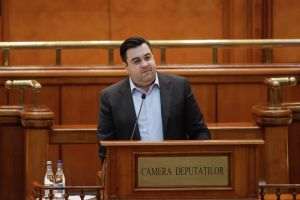Hungary's constant meddling in democratic processes in other countries, despite the Viktor Orban government's frequent rhetoric about protecting national sovereignty, represents a "perverse" situation, political expert Daniel Hegedûs, analyst at German Marshall Fund, quoted by www.klubradio.hu.
Hegedûs pointed out that Hungary is actively involved in supporting far-right parties in France and Spain, such as "Rassemblement National" and "Vox", offering them financial support, including through bank loans. Moreover, according to the representative of the German Marshall Fund, the Hungarian government had a notable presence in the election campaigns in Slovakia and Poland, actively involving itself through various forms of political advertising.
Daniel Hegedûs stated: "This is a threat to democratic stability that European partners probably do not yet take seriously. It is a perverse situation because, although the Hungarian government claims to fight against any violation of Hungary's sovereignty, it interferes in various ways in the democratic processes of other countries."
The Hungarian political expert warns that at the European level, Hungary's interventions in the internal politics of other states have become increasingly frequent and significant, creating a climate of concern. This strategy of the Orban government seems to support a tendency to consolidate the far-right, not only at the level of the European Parliament, but also in national parliaments, where their influence is growing.
A recent example of the diplomatic tensions between Hungary and its European partners is the joint Franco-German diplomatic protest list drawn up in response to controversial comments made by Balazs Orban, Prime Minister Viktor Orban's political director. These comments, which touched on both the Hungarian Revolution of 1956 and the war in Ukraine, were heavily criticized internationally.
Hungarian Foreign Minister Peter Szijjarto refused to accept a similar list submitted by Franco-German and British diplomats in 2023 in response to Hungary's blocking of Sweden's NATO membership. According to Hegedûs, this refusal indicates that such diplomatic overtures are becoming more frequent in Hungary's bilateral relations, which suggests a deterioration in cooperation with Western allies.
Another tense moment was the recent speech by the German ambassador to Budapest, Julia Gross, who offered an honest and critical assessment of the state of democracy in Hungary and how it affects relations with its partners. According to the cited source, this open approach on the part of Germany represents a significant change compared to the last 10-12 years, during which German diplomacy avoided direct criticism of Hungary's internal politics.
A key factor in these diplomatic tensions is the complex economic relationship between Hungary and Germany, particularly in the automotive sector. Although Hungary has had a close relationship with the German auto industry, Hegedûs pointed out that the Orban government seems to be moving more and more towards collaboration with the Chinese electric car and battery manufacturing industry. This reorientation could undermine traditional economic ties with Germany, creating new economic uncertainties on both sides. As these economic relationships destabilize, the risk of further diplomatic conflict increases.
The cited source also shows that the success of far-right parties in Europe is not necessarily reflected in the European Parliament, but in national parliaments, where they gain significant ground, and warns that this phenomenon cannot be stopped without restructuring the European economic and social system, which is serious affected by recent crises, including the war in Ukraine and rising energy prices.
Although the European Union has tried to outsource the management of these conflicts to institutions such as the European Commission, it is increasingly clear that member states will have to take direct action to manage these challenges.






























































